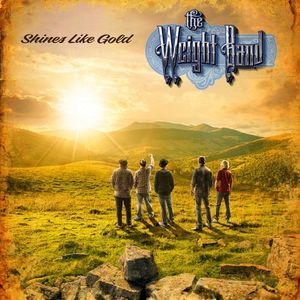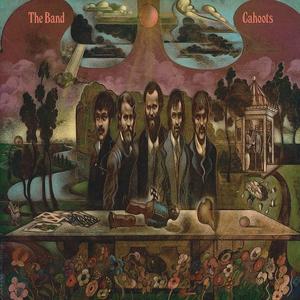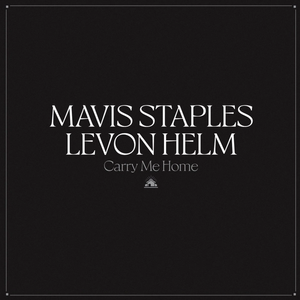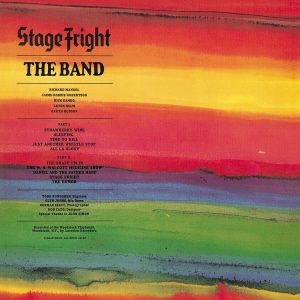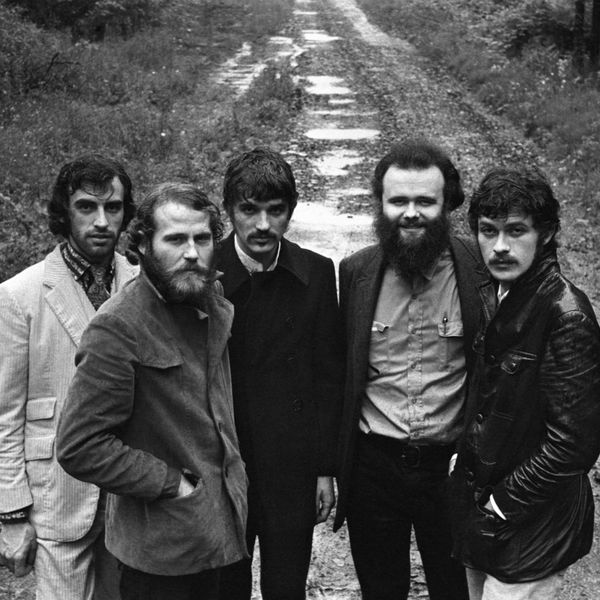




Link copied

By the time The Band got to Woodstock, NY in early 1967, the epoch-making festival that would forever be associated with the upstate mountain town was still two and a half years away.
Though they would become part of that phenomenon, for now, the quintet of musos that landed in the hamlet of West Saugerties in upstate New York were still known primarily as Bob Dylan's live (and sometime recording) regiment.
Americana has become a term with a catchment area as wide as the country it describes, never mind that it wasn't a word you heard in music circles in the late 1960s. But it's impossible to overstate what The Band did to bring rural North American musical tradition and time-honoured instrumentation into the rock world.
To celebrate the 50th anniversary re-release of The Band's third album Stage Fright, Holler took on (the daunting task of) capturing their lightning, in ten momentous instalments:
Tears Of Rage
Album one, track one, and what an introduction they served on Music From Big Pink. The July 1968 debut LP was named after the house in Woodstock rented by Rick Danko, Richard Manuel and Garth Hudson.
If they still didn't have a group name when they first hit the studio, they had an indelible collective identity from day one, with songs written predominantly by Manuel ('We Can Talk,' 'Lonesome Suzie') or Canadian marvel Robbie Robertson ('Chest Fever' and 'The Weight').
On 'Tears Of Rage', Robbie's wonky guitar tees up Richard's keening vocal, the latter's melody set to Dylan's typically enigmatic lyrics. It outranks the earlier version recorded by Bob with The Band the year before, released in the mid-1970s on The Basement Tapes.
In A Station
Step forward, as so often, The Band's secret weapon: maestro Garth Hudson, quite the genius at forging the daring keyboard textures that burnished their pre-eminence. He sets the scene here with a gloriously unhinged, drunken fairground motif before another melancholic narrative by Manuel, who takes or shares the lead on seven of the masterful Big Pink's 11 tracks.
Billboard, like many, marvelled at their genre-bending catholicism. “A group that simply calls itself The Band plays with a Harlem rock beat but also with an unmistakable Music City twang”, they reported. In Life magazine that summer, Al Aronowitz wrote in expressive awe: “It is country rock with cadences from W.S. Walcott's original Rabbit's Foot Minstrel Show and it tells stories the way Uncle Remus did”.
Rag Mama Rag
14 months on came the self-titled follow-up, the quintet's one platinum album and a masterpiece in its own right.
This time, in the UK at least, there was even a hit, in the form of this marvellously live-sounding hoedown starring Rick Danko's fiddle feature, Levon Helm's distinctively Mississippi-deep lead vocal (“we could be relaxing in my sleeping bag!”) and Hudson's lyrical piano.
All that and guest John Simon's brilliantly effective deployment of an incongruous instrument in roots music, the tuba.
Whispering Pines
Manuel's melody and Robertson's lyrics produce a song of achingly beautiful sadness. As Robbie told Barney Hoskyns: “Richard always had this very plaintive attitude in his voice, and sometimes just in his sensitivity as a person. I tried to follow that, to go with it and find it musically. We both felt very good about this song.”
The combination was rarely better. This and so many of Manuel's performances are lent tragic pertinence by the fact that he died, of apparent suicide and with a history of alcohol and substance abuse, in 1986 at the age of just 42.
King Harvest ( Has Surely Come)
The Classic Albums series, featuring studio deconstructions of vintage LPs, has few better entries than that on The Band, especially when Robertson sits at the desk, working the faders and reminding himself of the thrilling components of its final track.
Helm sings woefully of crop failures, a burning barn, union dues and a mad horse, on an incredible recording in which everyone is stunning. Robbie's assertive Telecaster lays atop Hudson's Lowrey organ and Danko's serpentine bassline.
All this, alongside the words, conjure a vivid video in your head, like the brooding “Corn in the fields, listen to the rice when the wind blows 'cross the water.” Magnificent.
Sleeping
Stage Fright, engineered by the already-notable Glyn Johns and the up-and-coming Todd Rundgren, was something of a sonic shift from country to town. Available in expanded 50th anniversary re-issues from today (February 12), this record was considerably more rocky in aspect than its forebears, and contained hints of disenchantment both with the changing times and regarding inter-band harmony.
But it oozes class, for example when the Robertson-Manuel axis gets to work on this delicate and, at times, almost jazzy lullaby. Hudson is again on Lowrey organ, as well as accordion, as Manuel accompanies himself at the piano to stunning effect and Robbie lands another knockout solo.
Stage Fright
The third album's title track, with Danko on lead vocal, was cited at the time as evidence of a growing unease in the ranks. It seems, instead, to be a more literal observation of author Robertson's performance nerves, and a man “just standing there to give it all his might”.
Still, as Helm later mused, the album's dark hue was “an accurate reflection of our group’s collective psychic weather. We all realised something was wrong, that things were beginning to slide”. Robertson, for his part, confirmed: “In Stage Fright, a lot of stuff I was trying to hold in was starting to creep out”.
The Moon Struck One
Cahoots came before a four-year hiatus in releases, and is widely seen as flawed, but it added further weight to what was already being hailed among rock critics as a formidable legacy.
Jon Landau wrote of it in Rolling Stone that the sheer sophistication of their work set them apart from their peers.“They are in the process,” he mused, “of creating a post-adolescent extension of rock, capable of encompassing a wider range of thoughts, feelings, pictures and sounds than most of the white rock musicians of the late Sixties were able to produce.”
A personal favourite is this alluringly-titled Robertson song, articulated by Manuel and replete with dreamy romanticism.
Acadian Driftwood
When duties were resumed, a cross-country shift saw The Band's recording base move to their new Shangri-La studio (later owned by Rick Rubin) in the hills above Zuma Beach in Malibu, California. It was a dramatic rearrangement of the sonic furniture, and by now Robertson was established as sole writer.
There would be one more album featuring the original five-piece, 1977's less well-regarded Islands. For all the changing circumstances, Northern Lights – Southern Cross was greeted with warmth, and it's full of beguiling melodies and performances, including the frisky, fondly-remembered 'Ophelia'. On 'Acadian Driftwood', Manuel, Danko and Helm share lead vocals on a historical yarn about the province of Nova Scotia and the colony of Acadia. Hudson excels on atmospheric accordion.
The Weight
One of the best-loved songs on The Band's first album became part of their swansong, in this version featuring Mavis and Pops Staples, from the soundtrack of their farewell concert on Thanksgiving Day, 1976.
Released on disc two years later and memorably captured on film by Martin Scorsese, The Last Waltz was an appropriately stellar send-off, with appearances by Dylan, Joni Mitchell, Muddy Waters, Emmylou Harris, Eric Clapton et al saying much for their admiration among fellow giants.
Three further albums in the 1990s, featuring most of the group sans Robertson, have plenty within them to recommend, but their earlier work stands as the most eloquent tribute to a group of colossal importance at the very core of American music.
Subscribe and listen to The Band's best songs playlist below:

For more on The Band, see below:


